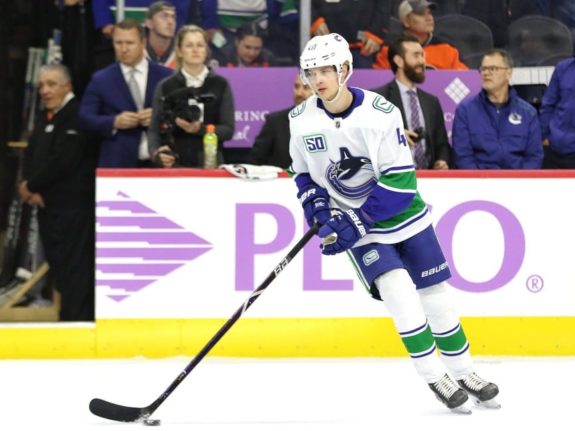An oft-discussed but rarely acted upon maneuver in the NHL is the offer sheet. Each off-season, teams have the opportunity to offer contracts to restricted free agents (RFA), much like they do with unrestricted ones. However, the team with the rights to the RFA in question has the option to match the offer sheet contract. On top of that, if the contract is not matched, the team losing its player will receive compensation in the form of draft picks, which change based on the dollar value of the deal.
In recent years, offer sheets have become more and more scarce, due in large part to the fact that NHL general managers tend to frown upon them. By offer sheeting a player, one puts the player’s team in a difficult position, potentially burning bridges between GMs for later deals. As a result, only one offer sheet has been signed in the past eight years (the Montréal Canadiens offer sheeted center Sebastian Aho in the summer of 2019, but the Carolina Hurricanes chose to match the deal).
With the NHL remaining in a flat cap environment for the foreseeable future, offer sheets appear to be unlikely this off-season. However, as an expansion team, the Seattle Kraken may change that. Their payroll will be among the lowest in the league, making them one of the few teams that can conceivably afford an offer sheet.
Again, ethical reasons render offer sheets a rare occurrence in the NHL, but it’s still worth taking a look at which RFAs Kraken GM Ron Francis could possibly try to steal from teams and what motivations he may have in doing so. Let’s take a look.
Notable RFAs
This off-season presents a substantial number of high-quality RFAs in need of new contracts. Contract extensions for young stars have become less common as the flat cap has limited flexibility. Thus, many cap-strapped teams have difficult decisions to make as far as retaining their RFAs.
The Vancouver Canucks are one such team. Although pending RFA defenseman Quinn Hughes is not eligible for an offer sheet due to his entry-level contract structure, phenom center Elias Pettersson is. His 2020-21 down season may lower his price, and he showed what he was truly capable of in the season prior. In 2019-20, Pettersson was among the top players in the league and a true contender for the Hart Trophy, finishing the regular season at a near point-per-game pace and second league-wide in Wins Above Replacement (WAR, Evolving Hockey).

Defenseman Cale Makar is another intriguing option for the Kraken. He led all defensemen in points per game and WAR and finished as the runner-up for the Norris Trophy as the league’s best defenseman. Unfortunately for Seattle, any offer sheet for Makar would almost certainly be matched by his Colorado Avalanche.

Other top RFAs eligible for offer sheeting include Patrik Laine of the Columbus Blue Jackets, Andrei Svechnikov of the Carolina Hurricanes, Brady Tkachuk of the Ottawa Senators, and many others. If the Kraken do choose to go the offer sheet route, they will not be hard-pressed to find a player on which to exercise that option.
Potential Reasons
The first and most obvious reason for offer sheeting a player is to acquire that player. For the Kraken, who are unlikely to mine any high-end, young talent from the expansion draft, alternate routes must be explored. An offer sheet allows Seattle to target an already-established but still young, high-end player. What must be considered in such a case, though, is the compensation involved. If the Kraken gave up one or more first-round picks and then failed to contend, the consequences could be disastrous.
On the other hand, offer sheets can be used more strategically. With so many teams pressed tight against the cap, offer sheets can be weaponized to hurt and limit the flexibility of other teams. An offer sheet for Makar is one such example. If the Kraken were to offer Makar a contract worth north of $10 million per year, and the Avalanche matched the deal, it would deeply affect Colorado’s ability to make other moves. In the short-term, that could mean letting captain Gabriel Landeskog walk in free agency, while it could result in even more dire consequences on a long-term basis. The Avalanche’s roster looks set to embark on a dynasty, but a move such as this one could seriously hinder that goal.
The same strategy could be employed against a divisional rival such as the Canucks. Though the Canucks have a strong young foundation, they have struggled to fill out their roster thanks to a dearth of cap space. By offer sheeting Pettersson at a high dollar figure with the full intention of getting it matched, the Kraken could prevent Vancouver from contending in the near future.
Francis would not be very popular among GMs if he were to take this route, which may deter him from doing so, but the option is there should he choose to exercise it. At the end of the day, his job is to give the Kraken the best chance to win. Despite the scarcity of offer sheets, the Kraken are in a unique position this summer to use one. Although there are pros and cons to consider, he should take a hard look at offer sheeting some top young talent around the league.